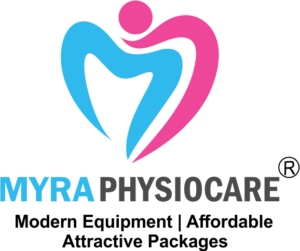Down’s Syndrome Physiotherapy
Individuals with Down’s syndrome can benefit from physiotherapy interventions to improve their physical abilities, functional independence, and quality of life.
Down syndrome, also known as Trisomy 21, is a genetic disorder that affects a person’s physical and intellectual abilities. Physiotherapy can be an important part of the management of individuals with Down syndrome.
Physiotherapy aims to improve muscle strength, balance, coordination, and mobility. Physiotherapy can help individuals with Down syndrome achieve their developmental milestones, improve their overall physical function, and increase their independence.
Here are some specific physiotherapy interventions that may be used for individuals with Down syndrome:
- Strength training: This may involve exercises to strengthen the muscles in the arms, legs, and trunk. Resistance bands, weights, and body weight exercises can be used.
Balance training: This may involve exercises to improve the person’s balance and coordination. This can include standing on one leg, balancing on a wobble board, or walking on a balance beam.
Gait training: This may involve exercises to improve the person’s walking pattern. This can include exercises to improve step length, stride length, and foot placement.
Endurance training: This may involve exercises to improve the person’s cardiovascular fitness. This can include activities such as cycling, swimming, or jogging.
Range of motion exercises: This may involve exercises to improve the person’s joint mobility. This can include stretching exercises for the muscles and joints.
It is important to note that the physiotherapy approach will vary depending on the individual’s age, ability level, and specific needs. A physiotherapist will work with the individual and their family to develop a personalized treatment plan that takes these factors into consideration.
